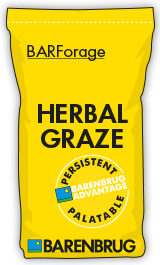Countryside Seeds Ltd
As of the 1st July a slight change to the business, it's become incorporated and with it a change of name. Farm machinery sales have not been a part of Farm Equip's business for a number of years and we felt now was the time for a new name to reflect more of what we do, so Countryside Seeds Limited was born.
We still offer friendly service and advice with up to date products at keen prices.
Company History
Farm Equip was launched by myself (Kevin) on the 1st January 1980. Initially selling farm consumables from the back of a yellow transit van.
Over the past few years the business has become almost predominately the sale of seed in its varies guises where it be a single bag of lawn seed to tonnes of grass/cereal seed.
I am in the very lucky position to be a distributor for some of the UK’s leading seed houses which include Barenbrug UK Ltd, DLF Trifolium Ltd, Grainseed Ltd and Soya UK to name a few.
I am more than happy to work with the customer on compiling their own mixture.
To contact me you may PM through the forum or I am very happy to be telephoned on 07881 804442.
Email: [email protected]
As like a lot of you I'm self employed so no 9-5 here so please telephone at your convenience.
As of the 1st July a slight change to the business, it's become incorporated and with it a change of name. Farm machinery sales have not been a part of Farm Equip's business for a number of years and we felt now was the time for a new name to reflect more of what we do, so Countryside Seeds Limited was born.
We still offer friendly service and advice with up to date products at keen prices.
Company History
Farm Equip was launched by myself (Kevin) on the 1st January 1980. Initially selling farm consumables from the back of a yellow transit van.
Over the past few years the business has become almost predominately the sale of seed in its varies guises where it be a single bag of lawn seed to tonnes of grass/cereal seed.
I am in the very lucky position to be a distributor for some of the UK’s leading seed houses which include Barenbrug UK Ltd, DLF Trifolium Ltd, Grainseed Ltd and Soya UK to name a few.
I am more than happy to work with the customer on compiling their own mixture.
To contact me you may PM through the forum or I am very happy to be telephoned on 07881 804442.
Email: [email protected]
As like a lot of you I'm self employed so no 9-5 here so please telephone at your convenience.
Last edited by a moderator:




































